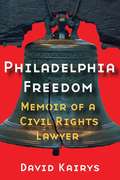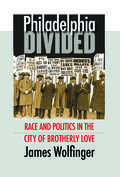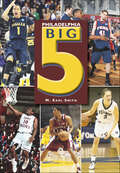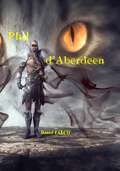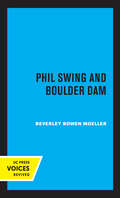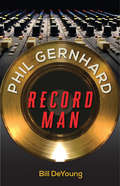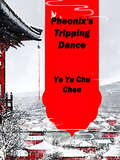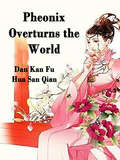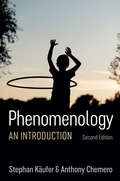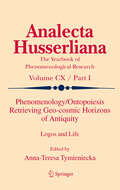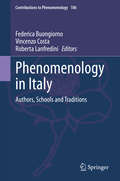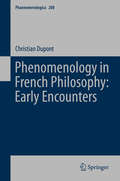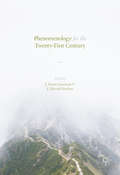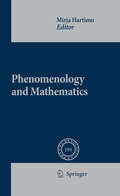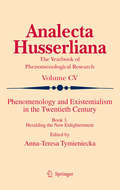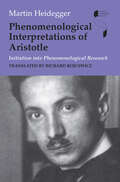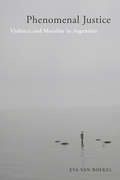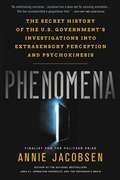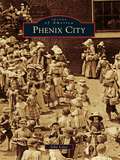- Table View
- List View
Philadelphia Freedom
by David Kairys"David Kairys is one of the grand long-distance runners in the struggle for justice in America. His brilliant legal mind and superb lawyerly skills are legendary. This marvelous book is his gift to us!" ---Cornel West, Professor of Religion and African American Studies, Princeton University, and award-winning author of Race Matters Philadelphia Freedom is the spellbinding tale of an idealistic young lawyer coming of age in the political cauldron of the 1960s and 1970s. From his immersion in the civil rights movement to his determined court battles to quell criminal violence by Philadelphia police, Kairys recounts how he helped make history in the city of brotherly love." ---William K. Marimow, Editor and Executive Vice President, Philadelphia Inquirer, and recipient of two Pulitzer Prizes "In the current climate of political deception and the trampling of our civil rights, Kairys's compelling book is a clenched fist, a prayer for social justice and a call to conscience." ---Steve Lopez, Los Angeles Times columnist and former Philadelphia Inquirer columnist "With engaging, insider stories of innovative legal strategies of a truly creative lawyer, this book evokes the ebullient spirit of progressive social change launched in the 1960s and should be read by aspiring and practicing lawyers as well as anyone interested in American social history. Philadelphia Freedom reads like a suspense novel and reveals how novel legal and political thinking can and does make a real difference to individuals and to the quality of justice." ---Martha L. Minow, Jeremiah Smith, Jr. Professor of Law, Harvard University "David Kairys's compelling book properly explains the vital role that civil rights attorneys play in our system of justice." ---Judge John E. Jones III, United States District Court for the Middle District of Pennsylvania, and presiding judge in the landmark Kitzmiller v. Dover Area School District case A memoir that is also a compelling page-turner, Philadelphia Freedom is the poignant, informative, often inspiring account of renowned civil-rights lawyer David Kairys's personal quest for achieving social justice during the turbulent 1960s and 70s. Philadelphia Freedom brings us intimately and directly into Kairys's burgeoning law career and the struggles of the 60s as his professional and private life navigated the turmoil and promise of the civil rights and antiwar movements. Many of the cases Kairys took on involved discrimination and equal protection, freedom of speech, and government malfeasance. Kairys is perhaps most well known for his victory in the Camden 28 draft board case, in which the FBI set up a sting of the Catholic anti-war left at the behest of the highest levels of government. The stories and cases range from nationally important and recognizable---the family of the scientist the CIA unwittingly gave LSD in the 1950s; the leading race discrimination case against the FBI; Dr. Benjamin Spock's First Amendment case before the Supreme Court; the city handgun lawsuits Kairys conceived---to those he encountered in his early work as a public defender. The characters include public figures such as FBI Directors J. Edgar Hoover and Louis Freeh; CIA Director William Colby; Pennsylvania Senator Arlen Specter; New York Attorney General Eliot Spitzer; U.S. Attorneys General Edward Levi and John Mitchell; Georgia Governor Lester Maddox; Pennsylvania Governor, former Philadelphia Mayor, and Democratic National Committee chair Ed Rendell; Philadelphia Mayor and Police Commissioner Frank Rizzo. But some of the most memorable are not well known, involving regular people caught up in the often heartless machinery of the courts and legal system. Though it reads like a novel, with all the elements of character, plot, and suspense, Philadelphia Freedom also has historical significance as a firsthand account of the 1960s and 70s and contains social commentary about race as well as insights and major perspectives on the nature and social role of law. David Kairys is Professor of Law at Beasley School of Law, Temple University. He ...
Philadelphia Flyers, The (Images of Sports)
by Joe Del Tufo Bruce Scoop" Cooper Russ Cohen Mike Del TufoThe Philadelphia Flyers joined the National Hockey League (NHL) in 1967, along with five other teams, to double the league from six to twelve teams. They have enjoyed a lot of success since, including being the first expansion team to win the Stanley Cup. They won back-to-back cups in 1973-1974 and 1974-1975 and would qualify for the Stanley Cup Final six more times. The Flyboys have left their mark on the NHL through their physicality, which helped them garner the nickname "Broad Street Bullies." This book is a pictorial history of the Flyers that examines their modern history and looks back at their legend.
Philadelphia Divided
by James WolfingerIn a detailed study of life and politics in Philadelphia between the 1930s and the 1950s, James Wolfinger demonstrates how racial tensions in working-class neighborhoods and job sites shaped the contours of mid-twentieth-century liberal and conservative politics. As racial divisions fractured the working class, he argues, Republican leaders exploited these racial fissures to reposition their party as the champion of ordinary white citizens besieged by black demands and overwhelmed by liberal government orders.By analyzing Philadelphia's workplaces and neighborhoods, Wolfinger shows the ways in which politics played out on the personal level. People's experiences in their jobs and homes, he argues, fundamentally shaped how they thought about the crucial political issues of the day, including the New Deal and its relationship to the American people, the meaning of World War II in a country with an imperfect democracy, and the growth of the suburbs in the 1950s. As Wolfinger demonstrates, internal fractures in New Deal liberalism, the roots of modern conservatism, and the politics of race were all deeply intertwined. Their interplay highlights how the Republican Party reinvented itself in the mid-twentieth century by using race-based politics to destroy the Democrats' fledgling multiracial alliance while simultaneously building a coalition of its own.
Philadelphia Big 5
by M. Earl SmithIn the "City of Brotherly Love," there are few things taken as seriously as local bragging rights. In a city that lives and dies with its sports heroes, basketball is no exception. This volume traces the lore and history behind Philadelphia's Big 5, an informal basketball league that features five of the area's most prestigious colleges: LaSalle University, Temple University, Saint Joseph's University, Villanova University, and the University of Pennsylvania. Formed in 1955, the Big 5 pulls teams from the Ivy League, the Big East, the American Athletic Conference, and, in the case of both LaSalle and Saint Joseph's, the Atlantic 10. With a round-robin format, each team plays the other once and best record takes home the trophy. In a sport that has become a nationwide sensation, the spirit of Philadelphia lives on, led by the most loyal and passionate fans in the world.
Philadelphia Architecture
by Thom NickelsPhiladelphia is a city of Colonial and ghostly architecture with narrow historic streets that open up onto vistas of bold, towering skyscrapers. It is a city of Greek Revival banks, Italian Renaissance, and Second Empire buildings, a city of Beaux-Arts hotels, Byzantine and Gothic churches, and International-style high-rises. A hybrid of gritty Chicago and pristine Boston, Philadelphia stands alone, an aristocrat in bib overalls, as a livable, intimate city of neighborhoods and luxurious townhouses, of hidden treasures and spectacular surprises. Philadelphia Architecture, a walk through Philadelphia streets past and present, highlights the richness and diversity of the city's architectural history.
Phil d'Aberdeen: A play in Anglo-Saxon sauce ...
by Daniel FalcoPhil d'Aberdeen by Daniel Falco A play in Anglo-Saxon sauce ... Phil d'aberdeen Phil the Scotsman, Phil the English, Phil the hero. Three different features for the same man who embodies the fundamental values of human life, seen as the only possibility of expressing himself in small and large enterprises, in hatred and love, in truth and falsehood, in courage and fear. Daniel Falco's theater comes to life, it dialogues with the actors, with the characters, with the scenes. And it does so through a curtain.
Phil Swing and Boulder Dam
by Beverley Bowen MoellerThis title is part of UC Press's Voices Revived program, which commemorates University of California Press’s mission to seek out and cultivate the brightest minds and give them voice, reach, and impact. Drawing on a backlist dating to 1893, Voices Revived makes high-quality, peer-reviewed scholarship accessible once again using print-on-demand technology. This title was originally published in 1971.
Phil Gernhard, Record Man
by Bill DeYoungA go-getting, red-headed college kid eager to break into the music business, Phil Gernhard produced a handful of singles for South Carolina doo-wop group Maurice Williams and the Zodiacs. One of these songs, "Stay," reached number one on the charts in 1960. Gernhard was just 19 years old. Phil Gernhard, Record Man is the story of a self-made music mogul who created nearly fifty years' worth of chart-topping songs. From a tiny office and studio in Florida, he co-wrote the Royal Guardsmen's "Snoopy vs. the Red Baron," America's fastest-selling single of 1966. He revived the career of singer Dion DiMucci with the ballad "Abraham, Martin and John"--a million seller. He discovered and produced hit records for Lobo, Jim Stafford, and the Bellamy Brothers. Through a long collaboration with music business icon Mike Curb, he launched to fame many others, including country superstars Tim McGraw and Rodney Atkins. In Nashville and Los Angeles, Phil Gernhard was a legend. Yet Gernhard's private life was crumbling. He battled physical and emotional demons that he simply couldn't overcome, struggling with alcoholism, drug addiction, and a bad past with his father. He filed for his fourth divorce just months before taking his own life in 2008. Through interviews with Gernhard's musicians, business partners, family members, and ex-wives, Bill DeYoung offers an intimate portrait of a brilliant yet troubled man who channeled his talent, ego, and ambition into the success of others. A true "record man," Gernhard did it all. He lived to make records into gold, to make unknowns into stars, and above all, to make music.
Pheonix's Tripping Dance: Volume 5 (Volume 5 #5)
by Ye YuChuChenWhen the original owner was ten years old, he was pushed into the lake. The original owner was brought to his room by the third lady and beaten to death. The female owner crossed over to his room to accept his memories, adapt to his fate, and meet the male owner.
Pheonix's Tripping Dance: Volume 4 (Volume 4 #4)
by Ye YuChuChenWhen the original owner was ten years old, he was pushed into the lake. The original owner was brought to his room by the third lady and beaten to death. The female owner crossed over to his room to accept his memories, adapt to his fate, and meet the male owner.
Pheonix's Tripping Dance: Volume 3 (Volume 3 #3)
by Ye YuChuChenWhen the original owner was ten years old, he was pushed into the lake. The original owner was brought to his room by the third lady and beaten to death. The female owner crossed over to his room to accept his memories, adapt to his fate, and meet the male owner.
Pheonix's Tripping Dance: Volume 2 (Volume 2 #2)
by Ye YuChuChenWhen the original owner was ten years old, he was pushed into the lake. The original owner was brought to his room by the third lady and beaten to death. The female owner crossed over to his room to accept his memories, adapt to his fate, and meet the male owner.
Pheonix's Tripping Dance: Volume 1 (Volume 1 #1)
by Ye YuChuChenWhen the original owner was ten years old, he was pushed into the lake. The original owner was brought to his room by the third lady and beaten to death. The female owner crossed over to his room to accept his memories, adapt to his fate, and meet the male owner.
Pheonix Overturns the World: Volume 2 (Volume 2 #2)
by Dan KanFuHuaSanQianXihe State rumour: Blue eyes covering the world! When she was born, her eyes were blue like the ocean. She was sent as a monster into the depths of the forest. The dignified young mistress of the Prime Minister's Estate had been of no interest to anyone for the past fifteen years. Fifteen years later, the empress had snuck in, the enemy had hunted him down and the emperor had set a trap, so there was no harm in it! [The Jun Family is powerful and has unlimited wealth. I will kill my enemies, fight the Queen, and harm the Emperor!] The Tian Family was heartless, turning their hands into clouds and dropping them into the deep abyss, what was there to fear?! She was born extraordinary. She changed her fate and was bathed in blood after she was reborn. When I kill her until the color changes in the mountains and rivers, the ghosts and deities will weep. I slaughter my way to the golden age of the dynasty! Rivers and mountains? If I overshadowed you, what would you do to me?! She was born to rule over the world!
Phenomenology: An Introduction
by Anthony Chemero Stephan KäuferA classic in its field, this comprehensive book introduces the core history of phenomenology and assesses its relevance to contemporary psychology, philosophy of mind, and cognitive science. It provides a jargon-free explanation of central themes in the works of Husserl, Heidegger, Sartre, and Merleau-Ponty. From artificial intelligence to embodiment and enactivism, Käufer and Chemero go on to trace how phenomenology has produced a valuable framework for analyzing cognition and perception, whose impact on contemporary psychological and scientific research, and philosophical debates, continues to grow. New to this second edition are a treatment of nineteenth-century precursors of experimental psychology; a detailed exploration of Husserl's analysis of the body; and a discussion of the work of Aron Gurwitsch and other philosophers and psychologists who explored the intersection of phenomenology and Gestalt psychology. The new material also includes an expanded consideration of enactivism, and an up-to-date examination of current work in phenomenologically informed cognitive science. This is an ideal introduction to phenomenology and cognitive science for the uninitiated, and will shed new light on the topic for experienced readers, showing clearly the contemporary relevance and influence of phenomenological ideas.
Phenomenology/Ontopoiesis Retrieving Geo-cosmic Horizons of Antiquity
by Anna-Teresa TymienieckaThe controversy of flux and stasis as the groundwork of reality of Greek ancient philosophy reached its crux in the all encompassing doctrine of the logos by Heraclitus of Ephesus. It centers upon human soul in its role with the cosmos. Philosophy of the Occident corroborating Greek insights with the progress of culture in numerous interpretations (Kant, Kierkegaard, Husserl, Merleau-Ponty, Ricoeur...), presented in this collection has neglected the cosmic sphere. While contemporary development of science revealed its grounding principles (papers by Grandpierre, Kule and Trutty-Coohill) the ancient logos fully emerges. Thus, logos hitherto hidden in our commerce with earth is revealed in its intertwinings with the cosmos through the trajectories of the phenomenology/ontopoiesis of life (Tymieniecka). The crucial link between the soul and the cosmos, in a new geo-cosmic horizon, is thus being retrieved.
Phenomenology in Italy: Authors, Schools and Traditions (Contributions to Phenomenology #106)
by Federica Buongiorno Vincenzo Costa Roberta LanfrediniThis book features a theoretical depiction of the Italian phenomenological tradition. It brings together the main Italian phenomenologists of the present to discuss the positions and theories of the most important Italian phenomenologists of the past. Those profiled include Antonio Banfi, Sofia Vanni Rovighi, Enzo Paci, Dino Formaggio, Giuseppe Semerari, Enzo Melandri, Paolo Bozzi, Carlo Sini, Giovanni Piana and Paolo Parrini.This collection shows not only the variety of perspectives but also the inner consistency, peculiarity and originality of the tradition. Moreover, the contributors connect continental and analytical traditions, the scientific approach and existentialism. Italian phenomenology, the rise of which dates back to Antonio Banfi’s writings on Husserl in 1923, proves to be from its very beginning, a relational philosophy. It is a philosophy that is capable, precisely by means of its method, of developing actual forms of communication and exchange among the different sciences. This book will provide graduate students and researchers with unique insights into the Italian school of phenomenological thought.
Phenomenology in French Philosophy: Early Encounters
by Christian DupontThis work investigates the early encounters of French philosophers and religious thinkers with the phenomenological philosophy of Edmund Husserl. Following an introductory chapter addressing context and methodology, Chapter 2 argues that Henri Bergson's insights into lived duration and intuition and Maurice Blondel's genetic description of action functioned as essential precursors to the French reception of phenomenology. Chapter 3 details the presentations of Husserl and his followers by three successive pairs of French academic philosophers: Léon Noël and Victor Delbos, Lev Shestov and Jean Hering, and Bernard Groethuysen and Georges Gurvitch. Chapter 4 then explores the appropriation of Bergsonian and Blondelian phenomenological insights by Catholic theologians Édouard Le Roy and Pierre Rousselot. Chapter 5 examines applications and critiques of phenomenology by French religious philosophers, including Jean Hering, Joseph Maréchal, and neo-Thomists like Jacques Maritain. A concluding chapter expounds the principal finding that philosophical and theological receptions of phenomenology in France prior to 1939 proceeded independently due to differences in how Bergson and Blondel were perceived by French philosophers and religious thinkers and their respective orientations to the Cartesian and Aristotelian/Thomist intellectual traditions.
Phenomenology for the Twenty-First Century
by J. Aaron Simmons and J. Edward HackettThis volume illustrates the relevance of phenomenology to a range of contemporary concerns. Displaying both the epistemological rigor of classical phenomenology and the empirical analysis of more recent versions, its chapters discuss a wide range of issues from justice and value to embodiment and affectivity. The authors draw on analytic, continental, and pragmatic resources to demonstrate how phenomenology is an important resource for questions of personal existence and social life. The book concludes by considering how the future of phenomenology relates to contemporary philosophy and related academic fields.
Phenomenology and Mathematics
by Mirja HartimoDuring Edmund Husserl's lifetime, modern logic and mathematics rapidly developed toward their current outlook and Husserl's writings can be fruitfully compared and contrasted with both 19th century figures (Boole, Schröder, Weierstrass) as well as the 20th century characters (Heyting, Zermelo, Gödel). Besides the more historical studies, the internal ones on Husserl alone and the external ones attempting to clarify his role in the more general context of the developing mathematics and logic, Husserl's phenomenology offers also a systematically rich but little researched area of investigation. This volume aims to establish the starting point for the development, evaluation and appraisal of the phenomenology of mathematics. It gathers the contributions of the main scholars of this emerging field into one publication for the first time. Combining both historical and systematic studies from various angles, the volume charts answers to the question "What kind of philosophy of mathematics is phenomenology?"
Phenomenology and Existentialism in the Twenthieth Century
by Anna-Teresa TymienieckaThe great flourishing in the Twentieth Century of the amalgamated movement of Phenomenology and Existentialism, having reached its unfolding and reverberation - as we have shown in our two preceding books and continue in this one - seems to have spanned the entire gamut of their marvels. Although the philosophical field is being still corroborated by phenomenologico-existential insights, phenomenology remains itself enigmatic. The question of its foundations, as the source of sense remaining unsolved by Husserl (herein Verducci's study of Husserl and Fink, infra-page). And yet, the deepest phenomenologico-existential inspiration undertakes a new critique of reason (Verducci), the pivotal role of Imaginatio Creatrix (Egbe), Jean Wahl's quest after ultimate meaning (Kremer-Marietti) and the Logos of the "Moral Sense" (Cozma and Szmyd). Phenomenology is then reborn in the ontopoiesis of life (Tymieniecka) as "first philosophy" (Haney). We have here a powerful ferment we may call the New Enlightenment.
Phenomenological Interpretations of Aristotle: Initiation into Phenomenological Research (Studies in Continental Thought)
by Martin HeideggerIn this early lecture series, the author of Being and Time develops his unique approach to understanding humanity’s relationship to the world.This volume presents a collection of Martin Heidegger’s lectures delivered at the University of Freiburg in the winter of 1921–1922. Preceding Being and Time, the work shows the young Heidegger introducing novel vocabulary as he searches for his genuine philosophical voice.In this course, Heidegger first takes up the role of the definition of philosophy and then elaborates a unique analysis of “factical life,” or human life as it is lived concretely in relation to the world, a relation he calls “caring.” Heidegger’s descriptions of the movement of life are original and striking. As he works out a phenomenology of factical life, Heidegger lays the groundwork for a phenomenological interpretation of Aristotle, whose influence on Heidegger’s philosophy was pivotal.
Phenomenal Justice: Violence and Morality in Argentina (Genocide, Political Violence, Human Righ)
by Eva van RoekelHow do victims and perpetrators of political violence caught up in a complicated legal battle experience justice on their own terms? Phenomenal Justice is a compelling ethnography about the reopened trials for crimes against humanity committed during the brutal military dictatorship that ruled Argentina between 1976 and 1983. Grounded in phenomenological anthropology and the anthropology of emotion, this book establishes a new theoretical basis that is faithful to the uncertainties of justice and truth in the aftermath of human rights violations. The ethnographic observations and the first-person stories about torture, survival, disappearance, and death reveal the enduring trauma, heartfelt guilt, happiness, battered pride, and scratchy shame that demonstrate the unreserved complexities of truth and justice in post-conflict societies. Phenomenal Justice will be an indispensable contribution to a better understanding of the military dictatorship in Argentina and its aftermath.
Phenomena: The Secret History of the U.S. Government's Investigations into Extrasensory Perception and Psychokinesis
by Annie JacobsenThe definitive history of the military's decades-long investigation into mental powers and phenomena, from the author of Pulitzer Prize finalist The Pentagon's Brain and international bestseller Area 51. This is a book about a team of scientists and psychics with top secret clearances.For more than forty years, the U.S. government has researched extrasensory perception, using it in attempts to locate hostages, fugitives, secret bases, and downed fighter jets, to divine other nations' secrets, and even to predict future threats to national security. The intelligence agencies and military services involved include CIA, DIA, NSA, DEA, the Navy, Air Force, and Army-and even the Joint Chiefs of Staff. Now, for the first time, New York Times bestselling author Annie Jacobsen tells the story of these radical, controversial programs, using never before seen declassified documents as well as exclusive interviews with, and unprecedented access to, more than fifty of the individuals involved. Speaking on the record, many for the first time, are former CIA and Defense Department scientists, analysts, and program managers, as well as the government psychics themselves.Who did the U.S. government hire for these top secret programs, and how do they explain their military and intelligence work? How do scientists approach such enigmatic subject matter? What interested the government in these supposed powers and does the research continue? Phenomena is a riveting investigation into how far governments will go in the name of national security.
Phenix City (Images of America)
by John LylesPhenix City, Alabama, on the western bank of the Chattahoochee River across from Columbus, Georgia, was officially incorporated as Brownville in 1883. However, its history can be traced through Girard, Knights Station, Summerville, Fort Mitchell, the Creek Indian town of Coweta, and several other communities within Russell County. Phenix City has provided a setting for many of the important events in Alabama's history from early Spanish explorers, to its rich Native American heritage, to its role in opening and settling the Southern frontier, to its adherence to King Cotton, to its rebirth after being regarded the "wickedest city in America." Phenix City has undergone profound change and yet has retained its rural charm.
